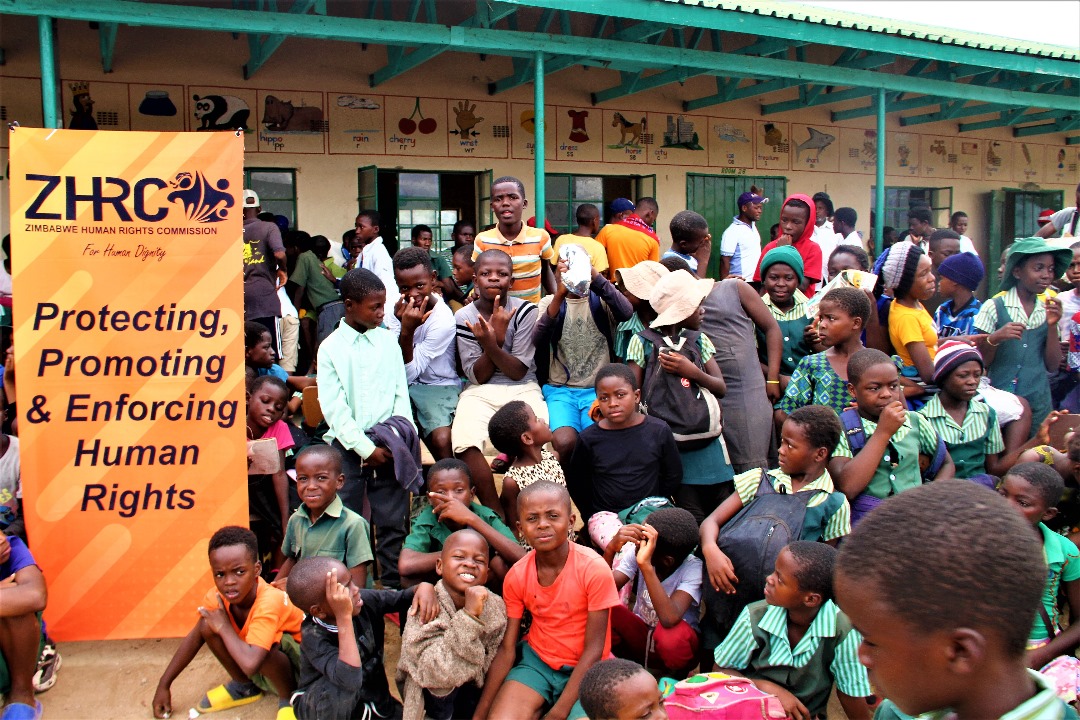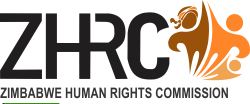THEMATIC WORKING GROUPS
The Zimbabwe Human Rights Commission Act [Chapter 10:30], provides that the ZHRC should establish Thematic Working Groups in order to have specialized attention to promotion and protection of various categories of rights. The Commission may from time to time review the number of Thematic Working Groups, their respective terms of reference and constitution thereof. Currently the Commission has six Thematic Working Groups namely:
- Children’s Rights;
- Civil and Political Rights;
- Environmental Rights;
- Gender Equality and Women’s Rights;
- Economic, Social and Cultural Rights; and
- Special Interests Groups with focus on persons with disability (including albinism), older persons, the youth, intersex persons and indigenous minorities.

CHILDREN'S RIGHTS
The focus of the TWG is to monitor the progress in the promotion and protection of the rights of children with input from key stakeholders so as to keep the commission abreast with current developments on children’s rights.
Members of the TWG:
- UNICEF Zimbabwe Country Office
- Save the Children Zimbabwe
- Ministry of Justice, Legal and Parliamentary Affairs
- Zimbabwe National Council for the Welfare of Children (ZNCWC)
- Ministry of Public Service, Labour and Social Welfare (MPSLSW)
- Ministry of Primary and Secondary Education
- Zimbabwe National Council for the Welfare of Children
- Office of the Registrar – General
- United Nations Development Programme – (UNDP)
- Legal Resources Foundation (LRF)
- Civil Registry Department
- Zimbabwe Heads of Christian Denominations
- Childline
- University of Zimbabwe (School of Social Work)
- Evangelical Fellowship of Zimbabwe
- Fund a Child’s Education Zimbabwe (FACEZ)
- National Association of Societies for the Care of the Handicapped (NASCOH)
- Ministry of Health and Child Care (MOHCC)
- SOS Children’s Village
- Plan International Zimbabwe
CIVIL AND POLITICAL RIGHTS
The TWG on Civil and Political Rights is premised on the idea that Civil and Political rights are a class of rights that protect individual freedoms from infringement by governments, social organizations, and private individuals. They ensure one’s ability to participate in the civil and political life of the society and without discrimination or repression. Civil rights include the ensuring of peoples’ physical and mental integrity, life, and safety; protection from discrimination on grounds such as race, gender, nationality ethnic or social origin, colour, age, political affiliation, religious belief, opinion, custom, language, place of birth, class, culture, sex, gender, marital status, pregnancy, disability or economic or social status, or whether they were born in or out of wedlock; and individual rights such as privacy and the freedoms of conscience, speech, religion, press, assembly, and movement.
Political rights include natural justice (procedural fairness) in law, such as the rights of the accused, including the right to a fair trial; due process; the right to seek redress or
a legal remedy; and rights of participation in civil society and such as freedom of association, the right to assemble, the right to petition, the right of self-defence, and the right to vote.
Members of the TWG
- Zimbabwe Republic Police (ZRP)
- Zimbabwe Peace Project (ZPP)
- Zimbabwe Lawyers for Human Rights (ZLHR)
- Ministry of Justice, Legal and Parliamentary Affairs
- Zimbabwe Heads of Christian Denomination
- Africa University
- Election Resource Centre (ERC)
- Zimbabwe Union for Journalists
GENDER EQUALITY AND WOMEN'S RIGHTS
One function of the TWG on Gender Equality and Women’s Rights, among other functions is to play an advisory role as well as monitoring and making appropriate responses to gender equality and women’s rights-related problems in the country in line with the ZHRC mandate to protect, promote and enforce human rights.
The TWG is guided by legal instruments which include the Convention on the Elimination of All Forms of Discrimination Against Women (CEDAW), Beijing Platform for Action (BPA), Solemn Declaration on Gender Equality in Africa (SDGEA), Southern Africa Development Community (SADC) Gender and Development Protocol, the Constitution of Zimbabwe, the revised Gender Policy and various other UN Treaties. The TWG can also carry out relevant researches and produce reports.
Members of the TWG:
- Musasa Project
- Women’s Institute for Leadership Development (WILD)
- Ministry of Women Affairs, Community Development, Small and Medium Enterprises (MWASCMED)
- Katswe Sisterhood
- PADARE/ Ekhundleni Men’s Forum on Gender
- Union for the Development of Apostolic Churches in Zimbabwe (UDACIZA)
- Zimbabwe Women’s Resource Centre and Network (ZWRCN)
- Zimbabwe Council of Churches (ZCC)
- Zimbabwe Women Lawyers Association (ZWLA)
- Combined Harare Residents Association (CHRA)
- Women and Law in Southern Africa (WILSA)
ECONOMIC, SOCIAL AND CULTURAL RIGHTS (ESCR)
The ESCR TWG was created to take responsibility for economic, social and cultural rights issues. ESCR relate to the workplace, social security, family life, participation in cultural life, and access to housing, food, water, health care and education. The TWG works with the support of various partners including Government.
The purpose of the ESCR TWG is to effectively and proactively respond to violations of economic, social and cultural rights and influence policy and decision making at national and sub – national levels.
Members of the TWG:
- Community Working Group on Health
- ZimRights
- Lupane State University
- Amagugu Inter-Cultural Centre
- Labour and Economic Development Research Institute of Zimbabwe (LEDRIZ)
- Zimbabwe Congress of Trade Unions
SPECIAL INTEREST GROUPS
The focus of the Special Interest Groups TWG is to promote and protect human rights of special interest groups such as the people with disabilities, older persons, youths and indigenous minorities. This is done through the review of legislature that governs these interest groups and research in general. The TWG also encourages the State to equitably distribute resources to these interest groups as provided for in the Constitution rights issues that impact these social groups.
Members of the TWG:
- Ministry of Public Service, Labour and Social Welfare
- Help Age Zimbabwe
- Federation of Persons with Disability in Zimbabwe
- Zimbabwe Albino Association
- National Association Youth Organisations
- Deaf Zimbabwe Trust
